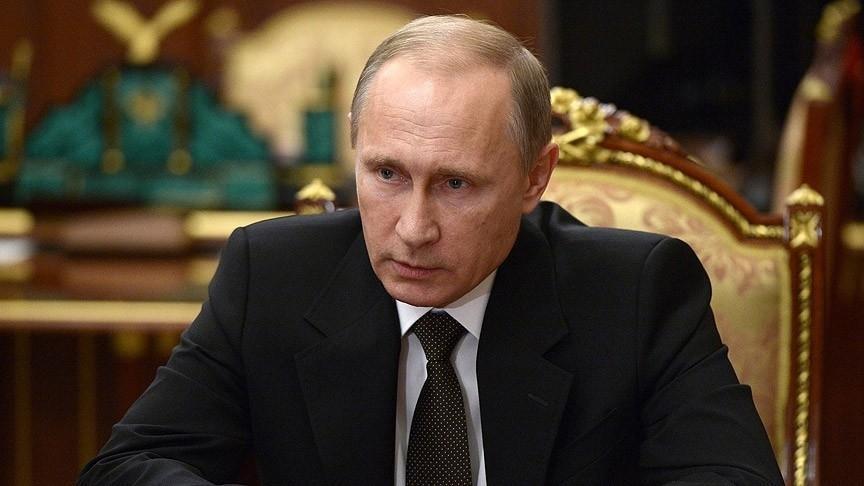
Moscow City
By Emre Gurkan Abay
MOSCOW
The Kremlin’s recent economic policies are unsustainable and could lead to civil unrest, analysts said Wednesday.
As the country is involved in military conflicts in Ukraine and Syria it also faces crippling international sanctions and a crash in the price of oil, the country’s greatest export.
The Russian parliament, or Duma, is currently debating the 2016 federal budget, which was proposed last month.
According to figures, Russia’s military spending next year will rise by 0.8 percent with $49 billion allocated to “national defense.”
Meanwhile, in an effort to balance the books, President Vladimir Putin's government anticipates cutting health expenditure by 8 percent and education spending by 8.5 percent in 2016. Pension costs are also due to be trimmed by 4 percent.
“This proposed level of defense spending at the cost of investment in healthcare and education is unsustainable,” Russia and Eurasia expert John Lough, of the British think tank Chatham House, told Anadolu Agency.
Predicting that such cost-cutting on vital social projects could lead to protests in Russian cities, Lough also said that sanctions due to be implemented against Turkey will make matters worse “because they will hit the pockets and kitchen tables of large swathes of the population.”
Since the downing of a Russian warplane that violated Turkey’s airspace near the Syrian border on Nov. 24, Russia has announced a range of sanctions against Turkey, including the end of visa-free travel arrangements between the countries and a ban on Turkish food products. The government has also called on its citizens to boycott Turkey as a tourist destination.
Agnia Grigas, an independent energy and policy consultant and author of Beyond Crimea, said the Kremlin’s policies demonstrated the pursuit of state power and military resurgence over living standards and the state of the economy.
"This was evident when Russia retaliated with sanctions against Western food products -- a policy that has most hurt the Russian people," she told Anadolu Agency.
Some EU products, as well as those from countries such as Australia, Canada, Norway and the U.S., were banned last year in response to sanctions imposed over Russia’s role in the Ukrainian crisis.
Budget deficit
“It is remarkable that Russia sticks to a budget deficit of about 3.5 percent of gross domestic product [while] being involved in two wars,” Anders Aslund, a senior fellow at the Atlantic Council, said.
While being shackled with the cost of military adventures in Ukraine and Syria, Aslund said reasonable predictions that oil would return to a price of $50 a barrel may prove to be over-optimistic.
Oil prices have fallen by around 60 percent since mid-2014, caused deep problems for the Russian economy. According to the U.S. Energy Information Administration, crude oil made up 33 percent of Russian exports in 2013, with natural gas and other petroleum products adding another 35 percent.
Last year, more than $151 billion in capital flowed out of the Russian economy, according to the country's central bank, which has forecast another $120 billion in capital flight in 2015.
Russian growth will be 0.7 percent in 2016, according to the latest forecast by the Ministry of Economic Development. However, the International Monetary Fund’s forecast is grimmer -- the fund expects Russian GDP to decline by 0.6 percent.
GDP in Russia contracted by 4.1 percent year-on-year in the third quarter of 2015, following a 4.6 percent drop in the previous period.
Aslund said the main question was how much suffering the Russian people could take.
Daragh McDowell, a director at global risk analysts Maplecroft, noted that President Vladimir Putin’s government had increasingly emphasized the sacrifice of the Soviet people during World War II -- presenting it as a model to be emulated.
"Nevertheless, cuts to social spending, which have been largely delayed until now through a variety of means, are going to cause real economic pain and social discontent," McDowell said.
"Especially given the ostentatious corruption of many of Russia’s senior politicians."
Hossein Askari, a professor of International Business and International Affairs at George Washington University, said Putin’s leadership could prove vital in either resolving of exacerbating Russia’s woes.
"Russia is experiencing serious financial difficulties," he told Anadolu Agency, pointing to the budget deficits, continuing low oil prices and wars in Syria and Ukraine.
"Mr. Putin must be feeling the pressure," Askari said in reference to economic mismanagement and vast military spending.
These would require political will and a sharp turnaround in policy, he added.
"But sadly for the Russian people, Mr. Putin is obstinate and will not change."
Anadolu Agency website contains only a portion of the news stories offered to subscribers in the AA News Broadcasting System (HAS), and in summarized form. Please contact us for subscription options.







